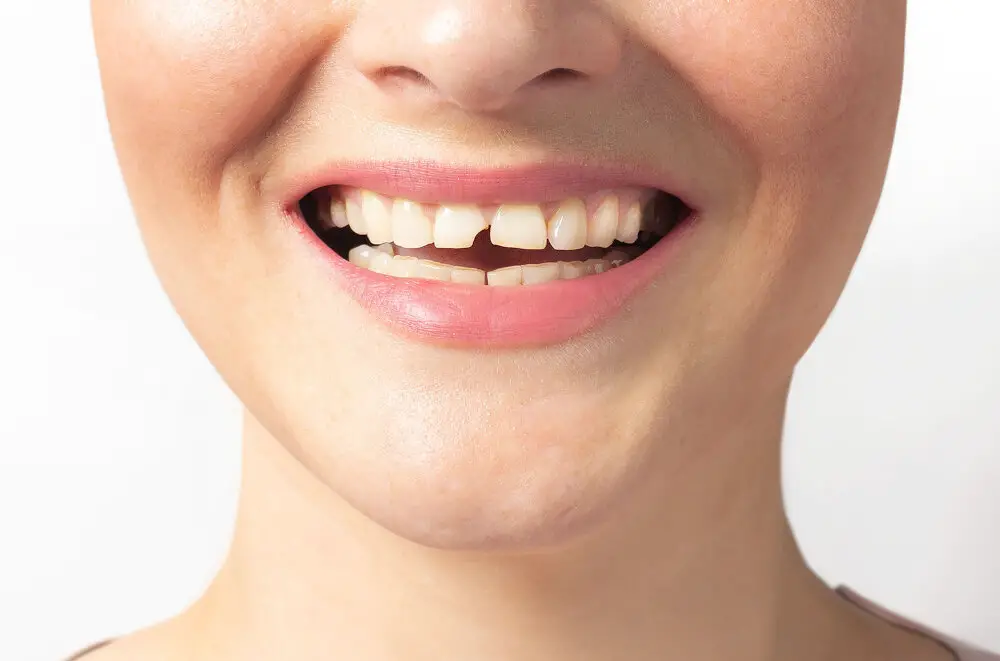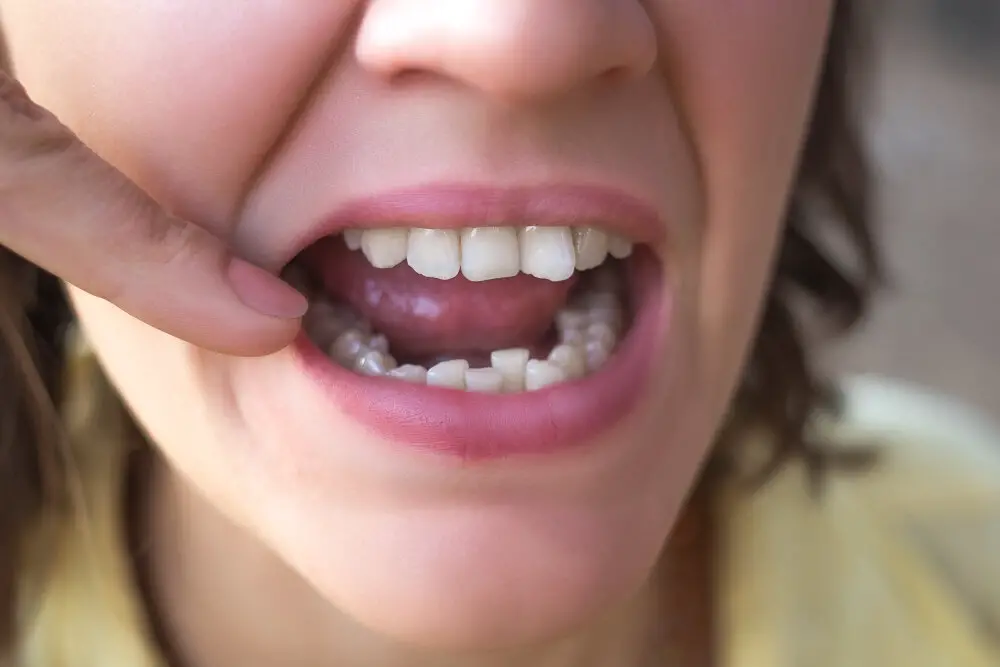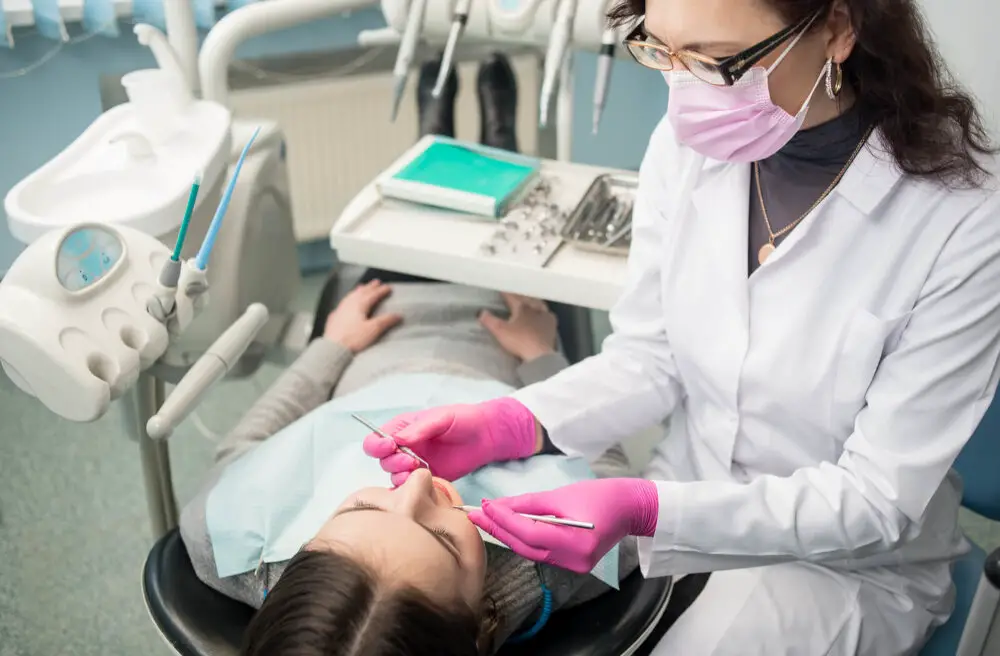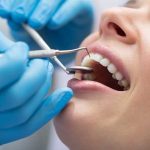Quick Healing Guide: How Long Does it Take for Wisdom Teeth Holes to Close?

Wisdom teeth extraction is a common dental procedure that many individuals undergo. The extraction process is usually quick and straightforward, but the recovery period can vary depending on the individual’s health and the complexity of the extraction. One of the most common questions that people ask after getting their wisdom teeth removed is how long it takes for the holes to close. The healing process can be uncomfortable, but with proper care and attention, it can be expedited. The wisdom teeth are the last set of molars that grow in the back of the mouth, and they typically emerge in the late teenage years or early adulthood. In some cases, the wisdom teeth can become impacted or grow in at an angle, causing discomfort and pain. If left untreated, they can cause damage to adjacent teeth and the jawbone. Therefore, it is essential to remove them to prevent further complications. However, after the extraction, the healing process can take a few weeks, and it is crucial to follow the dentist’s instructions to ensure proper healing and avoid any post-operative complications.
Wisdom teeth holes refer to the empty sockets left in the jawbone after the extraction of wisdom teeth. Wisdom teeth are the last set of molars to emerge at the back of the mouth, usually between the ages of 17 and 25. These teeth can cause pain, infection, and overcrowding, leading to the need for extraction. After the extraction, the body will start the healing process to close the holes left behind, which can take several weeks to months. The healing process involves the formation of a blood clot, new bone growth, and the closing of the gum tissue, which can cause discomfort and swelling in the area. Proper care and following the post-operative instructions from the dentist can help speed up the healing process and reduce the risk of complications.
Allowing enough healing time is crucial for any type of injury or surgical procedure, including the extraction of wisdom teeth. It is a natural process that enables the body to repair and regenerate the affected tissues, reducing the risk of complications and promoting a faster and more complete recovery. This healing time involves several stages, such as inflammation, tissue formation, and remodeling, that require different amounts of time depending on the extent of the damage and the individual’s health condition. Rushing the healing process by ignoring the recommendations of the dentist or not taking proper care of the wound can lead to infections, bleeding, pain, and other problems that can prolong the recovery and affect the final outcome. Therefore, giving your body the time and resources it needs to heal is essential for achieving optimal results and minimizing the discomfort and risks associated with wisdom teeth removal.
Factors Affecting Healing Time

There are various factors that can affect the healing time of wisdom teeth holes. One of the most significant factors is the severity of the extraction. If the tooth was impacted or if it required surgical extraction, the healing time may take longer. The location of the tooth can also play a role in the healing time as those located in the back of the mouth may take longer to heal than those in the front. Additionally, individual factors such as age, overall health, and immune system function can also affect how quickly the body can heal. A healthy individual with a strong immune system may heal faster than someone who is older or has a weakened immune system. Another factor that can affect healing time is how well the patient follows post-operative care instructions. Proper care, such as avoiding smoking or drinking through straws, can help prevent complications and speed up the healing process. Poor oral hygiene can also lead to infection, which can further delay healing. Lastly, taking medications as prescribed can help manage pain and inflammation, which can also contribute to a faster healing time. Overall, there are various factors that can affect the healing time of wisdom teeth holes, but proper post-operative care and a healthy lifestyle can aid in a quicker recovery.
Age can play a significant role in the healing process of wisdom teeth holes. Generally, younger individuals tend to heal faster than older individuals due to their increased ability to regenerate tissues. However, other factors such as overall health, diet, and lifestyle habits can also impact healing time. It is important to follow post-operative care instructions from your dentist and to maintain good oral hygiene to promote healing. Additionally, if you are experiencing prolonged pain or bleeding, it is essential to seek medical attention as it could be a sign of infection or other complications.
Oral hygiene is crucial for maintaining good oral health, especially after wisdom teeth extraction. It involves taking care of your teeth, gums, and mouth to prevent dental problems such as cavities, gum disease, and infections. After wisdom teeth extraction, it is essential to keep the area clean by gently brushing the teeth twice a day, using mouthwash, and avoiding foods that can cause irritation or infection. Good oral hygiene practices can help speed up the healing process and prevent complications such as dry socket, which can delay the closure of wisdom teeth holes. It is recommended to follow a regular oral hygiene routine and visit a dentist every six months for a professional cleaning and checkup.
Smoking is a habit that can have detrimental effects on the healing process of wisdom teeth extraction. The toxic chemicals in cigarettes can impede the body’s natural ability to heal, leading to delayed healing and increased risk of infection. Furthermore, smoking can also cause dry sockets, a painful condition in which the blood clot formed after extraction is dislodged. It is recommended to avoid smoking for at least 72 hours after the procedure, and it’s best to quit smoking altogether to improve overall health and wellbeing.
Medications can be extremely helpful in managing the pain and discomfort associated with wisdom teeth extraction. Over-the-counter pain relievers like ibuprofen and acetaminophen are commonly recommended to alleviate mild to moderate pain. Prescription medications like opioids may be prescribed by a dentist or oral surgeon for severe pain. Antibiotics may also be prescribed to prevent infection. It is important to follow the instructions of your dentist or oral surgeon regarding medication usage to ensure proper healing and minimize side effects. Additionally, certain medications like blood thinners may need to be adjusted or temporarily stopped before the extraction procedure to reduce the risk of bleeding.
Health conditions can have a significant impact on the healing process of wisdom teeth extraction holes. Factors such as smoking, poor oral hygiene, and underlying medical conditions such as diabetes and autoimmune diseases can all prolong the healing time. Additionally, certain medications like blood thinners can also affect the healing process. It’s important to communicate any existing health conditions with your dentist or oral surgeon before the procedure to ensure proper aftercare and a successful healing process. Maintaining a healthy lifestyle and following postoperative instructions can also aid in a speedy recovery.
Typical Healing Time

The typical healing time for wisdom teeth holes to close can vary depending on a variety of factors. In general, it can take anywhere from one to two weeks for the hole to fully close and for the surrounding gum tissue to heal. However, some people may experience a longer healing process due to complications such as infection or dry socket. It is important to follow your dentist or oral surgeon’s post-operative instructions to ensure proper healing and to prevent any complications. Factors that can affect the healing time include the complexity of the extraction procedure, the individual’s age and overall health, and whether or not the individual smokes. Smoking can significantly slow down the healing process and increase the risk of complications such as infection and dry socket. It is important to avoid smoking and to follow all post-operative care instructions to ensure a smooth and quick healing process. If you experience any pain, swelling, or other symptoms after wisdom teeth extraction, be sure to contact your dentist or oral surgeon right away to prevent any further complications.
The first 24 hours after wisdom teeth extraction are crucial for a speedy recovery. During this time, it’s important to rest and avoid any strenuous activity that may cause bleeding or swelling. Applying ice packs to the affected area can help reduce inflammation and discomfort. It’s also recommended to eat soft foods and avoid anything too hot or cold. Additionally, following the prescribed pain medication and oral hygiene instructions can aid in the healing process. Keeping the mouth clean by gently rinsing with salt water can prevent infection and promote faster healing. With proper care during the first 24 hours, the recovery process can be smoother and quicker.
The first week after wisdom teeth extraction can be a challenging time as patients often experience swelling, pain, and discomfort. It is important to follow the post-operative instructions provided by the dentist or oral surgeon to ensure proper healing. During this time, patients should avoid strenuous physical activity, smoking, and drinking through a straw. They should also stick to a soft food diet and maintain good oral hygiene by gently rinsing with warm salt water. The first week is crucial in the healing process, and taking proper care of yourself can help minimize complications and promote faster healing.
The first month after wisdom teeth removal is critical for proper healing. During this time, patients should follow their dentist’s instructions carefully to ensure that the sockets heal correctly. The first few days after surgery are typically the most uncomfortable, with swelling and pain being common. Patients can manage these symptoms with ice, pain medication, and rest. As the days progress, the swelling should decrease, and patients can begin to introduce softer foods into their diet. It’s essential to avoid anything that could dislodge the blood clot that forms in the socket, as this can lead to dry socket and delay healing. By the end of the first month, most patients should see significant progress in the healing of their wisdom teeth holes, with the sockets beginning to close and the gums regaining their strength.
Complete healing refers to the process in which the body fully recovers from an injury or condition. This process involves a range of factors, including physiological, psychological, and emotional healing. In the context of wisdom teeth extraction, complete healing typically involves the closure of the extraction site, the formation of new bone tissue, and the resolution of any pain or discomfort associated with the procedure. The speed and success of complete healing can vary depending on a range of factors, including the individual’s overall health, the complexity of the extraction procedure, and the quality of aftercare provided. By following proper aftercare instructions and seeking medical attention as needed, individuals can promote faster and more complete healing following wisdom teeth extraction.
Tips for Faster Healing

When it comes to healing after dental surgery, there are a few tips you can follow to speed up the process. Firstly, it’s essential to keep the area clean to prevent infection. Rinse your mouth gently with warm salt water after meals, and avoid using a straw or smoking, which can dislodge the blood clot forming in the socket. It’s also important to rest and avoid strenuous activities for the first few days after surgery to allow your body to focus on healing. You can also use ice packs to reduce swelling and discomfort, but make sure not to apply it directly to your skin. Wrap it in a towel or cloth before applying it to your face. Finally, follow your dentist’s instructions for pain relief and medication to manage any discomfort you may experience. In addition to these tips, eating a healthy diet is essential for faster healing. Soft, nutritious foods like yogurt, mashed potatoes, and smoothies can help you get the nutrients you need without irritating the surgical site. Avoid hard, crunchy, and spicy foods that can cause discomfort or damage to the area. Lastly, make sure to attend all your follow-up appointments with your dentist to ensure that your healing is progressing as expected. If you notice any signs of infection, such as fever, swelling, or discharge from the surgical site, contact your dentist immediately. By following these tips, you can minimize your recovery time and return to your normal activities as soon as possible.
Rinsing with saltwater, a simple yet effective remedy to promote healing after wisdom teeth extraction. A saline solution helps to reduce inflammation, prevent infection, and soothe discomfort. Saltwater also stimulates blood flow and encourages the formation of new tissue. To make the solution, dissolve half a teaspoon of salt in a cup of warm water and swish it gently around the mouth for 30 seconds before spitting it out. Avoid using mouthwash or toothpaste during the first few days after surgery, as they can irritate the sensitive area. Rinsing with saltwater is a natural and cost-effective way to speed up the healing process and ensure a smooth recovery.
Applying ice packs is a useful method for managing the pain and swelling that may occur after wisdom teeth removal surgery. Ice helps to constrict the blood vessels in the affected area, reducing inflammation and numbing the pain. It is recommended to apply ice packs for 20 minutes at a time, with 20-minute breaks in between to avoid damaging the skin. Additionally, using a cloth or towel to cover the ice pack can help prevent frostbite. While ice packs can be an effective short-term solution for pain management, it is important to follow any additional instructions provided by your dentist or oral surgeon to ensure proper healing.
After wisdom teeth extraction, it is essential to consume soft foods to prevent any complications such as infection, bleeding, or damage to the surgical site. Soft foods are those which do not require much chewing and can be easily swallowed. These foods also provide the necessary nutrients and prevent malnourishment during the recovery period. Some examples of soft foods are mashed potatoes, soup, yogurt, applesauce, and smoothies. It is crucial to avoid hard, crunchy, or sticky foods as they can damage the surgical site and delay the healing process. Additionally, it is essential to maintain oral hygiene by gently brushing and rinsing your mouth with water after consuming soft foods.
Avoiding smoking and alcohol is crucial for quick healing after wisdom teeth extraction. Smoking can delay the healing process as it reduces blood flow to the affected area and increases the risk of infection. Moreover, alcohol consumption can interfere with the effectiveness of pain medication and cause dry socket, a painful condition that occurs when the blood clot in the extraction site is dislodged. It is recommended to refrain from smoking and drinking alcohol for at least 72 hours after the surgery. Instead, patients should stay hydrated and eat soft, nutrient-rich foods like soups, smoothies, and mashed potatoes to promote healing.
The process of healing can vary depending on several factors, including the individual’s overall health, the severity of the extraction, and how well they follow post-operative instructions. Typically, the healing time for wisdom teeth extraction takes around one to two weeks, during which the patient may experience some discomfort, swelling, and bleeding. However, proper care can help speed up the healing process and prevent any complications. This includes following a soft-food diet, avoiding smoking, and maintaining good oral hygiene. It is essential to note that healing is a gradual process, and it may take several weeks or even months for the socket to fully close and the gums to heal completely. Regular check-ups with your dentist can help ensure a smooth and speedy recovery.
Following aftercare instructions is crucial for quick healing after wisdom teeth extraction. The aftercare instructions may include avoiding hard or crunchy foods, refraining from smoking, and rinsing the mouth with salt water. These instructions help to prevent infection, promote clot formation, and reduce swelling. Failure to follow these instructions can lead to complications such as dry socket or infection, which can prolong the healing process and cause discomfort. Therefore, it is essential to follow the aftercare instructions to ensure a speedy recovery and avoid potential complications.
Knowing when to seek professional advice is crucial in ensuring that you receive the best possible care for your wisdom teeth extraction. If you experience excessive bleeding, severe pain, or develop an infection, it is essential to contact your dentist or oral surgeon immediately. Additionally, if you notice any unusual symptoms, such as pus or a foul odor coming from the extraction site, it is best to seek professional advice. It is essential to follow your dentist’s instructions carefully to promote proper healing and prevent complications. Seeking professional advice can help you avoid further damage or infection and ensure that your wisdom teeth holes close efficiently, allowing you to return to your daily routine as quickly as possible.
Conclusion

In conclusion, the healing process of wisdom teeth extraction holes can take anywhere from a few days to several weeks depending on several factors such as age, overall health, and the complexity of the extraction. It is crucial to follow proper aftercare instructions such as keeping the area clean, avoiding hard and crunchy foods, and taking prescribed medication to ensure a speedy and successful recovery. It is also important to note that every individual’s healing process is unique, and it may take longer for some than others. Therefore, patience and diligence in following the recommended aftercare practices are key to achieving optimal healing and closing of wisdom teeth holes.








